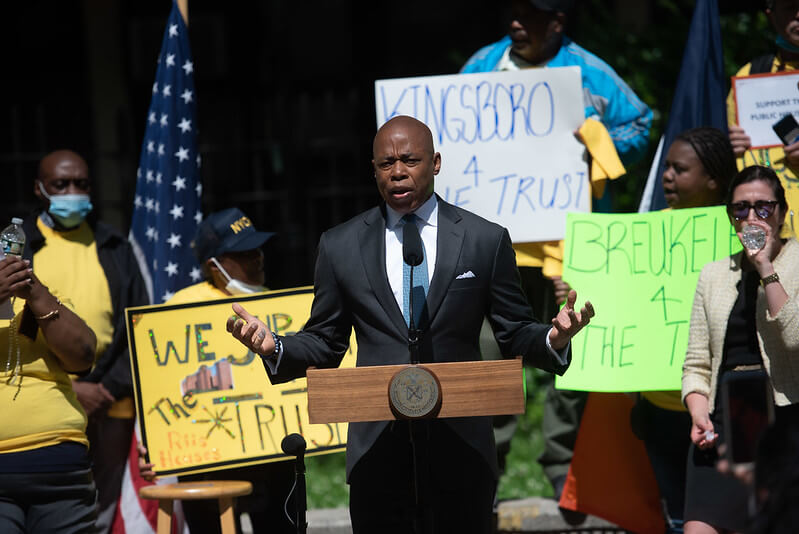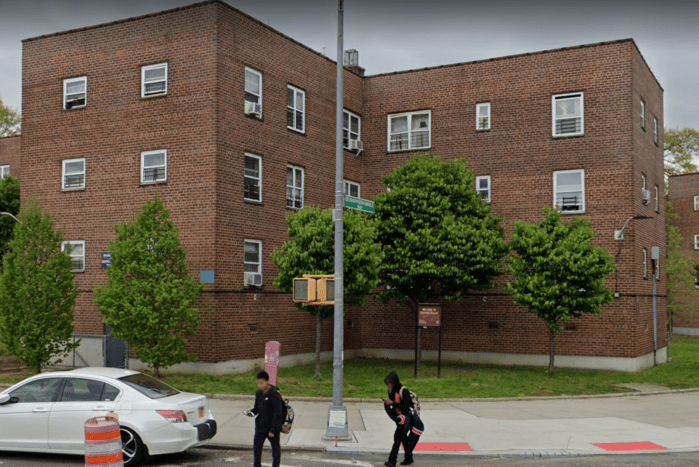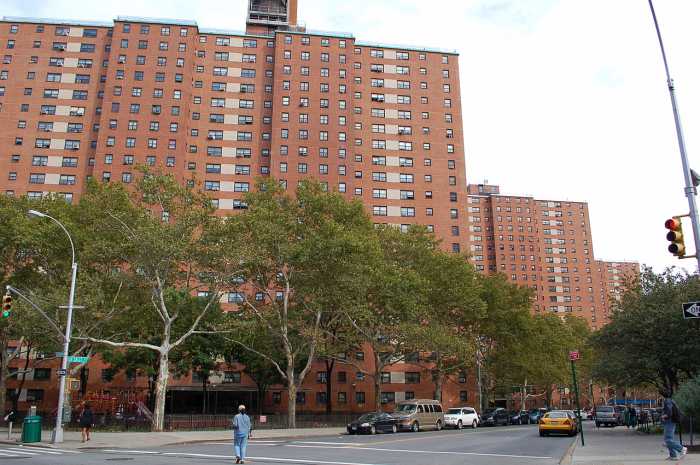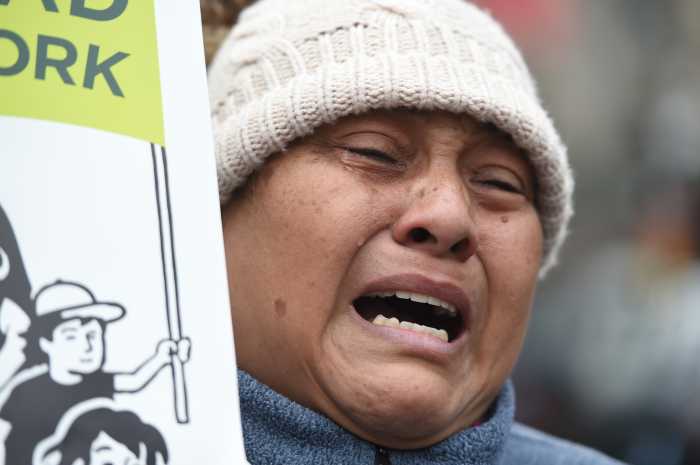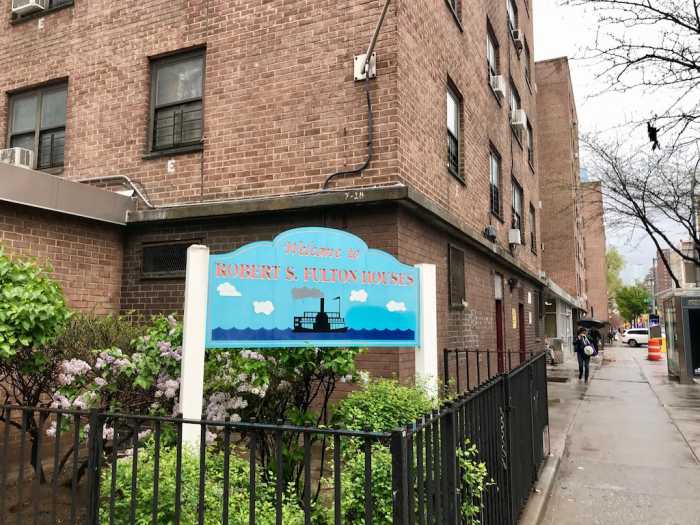The recently established New York City Housing Authority “Preservation Trust,” designed to unlock billions of dollars in sorely needed federal funds to fix up the city’s dilapidated public housing stock, is taking shape, as Mayor Eric Adams appointed six individuals Friday to a nine-member panel that will lead the entity.
The trust is a city-owned public benefit corporation, set up through state legislation signed into law last year, with the power to borrow money by issuing bonds. Proponents of the trust say it allows for a significant new funding stream to make much-needed repairs across NYCHA’s aging 285 campuses, which collectively require an estimated $40 billion in capital improvements due to decades of divestment in the agency.
The legislation clears the way for NYCHA to lease 25,000 of its apartments to the trust, converting them from the federal Section 9 subsidy program to Section 8. That change would free up billions of federal dollars that could go toward fixing rampant problems in NYCHA buildings like heat and hot water outages, broken elevators and rodent infestations.
Per guidelines laid out in the legislation that established the trust, Adams tapped NYCHA’s Interim CEO Lisa Bova-Hiatt to serve as the board’s chair, as well as the agency’s CFO Annika Lescott-Martinez and city Chief Housing Officer Jessica Katz all as ex officio members — according to City Hall.
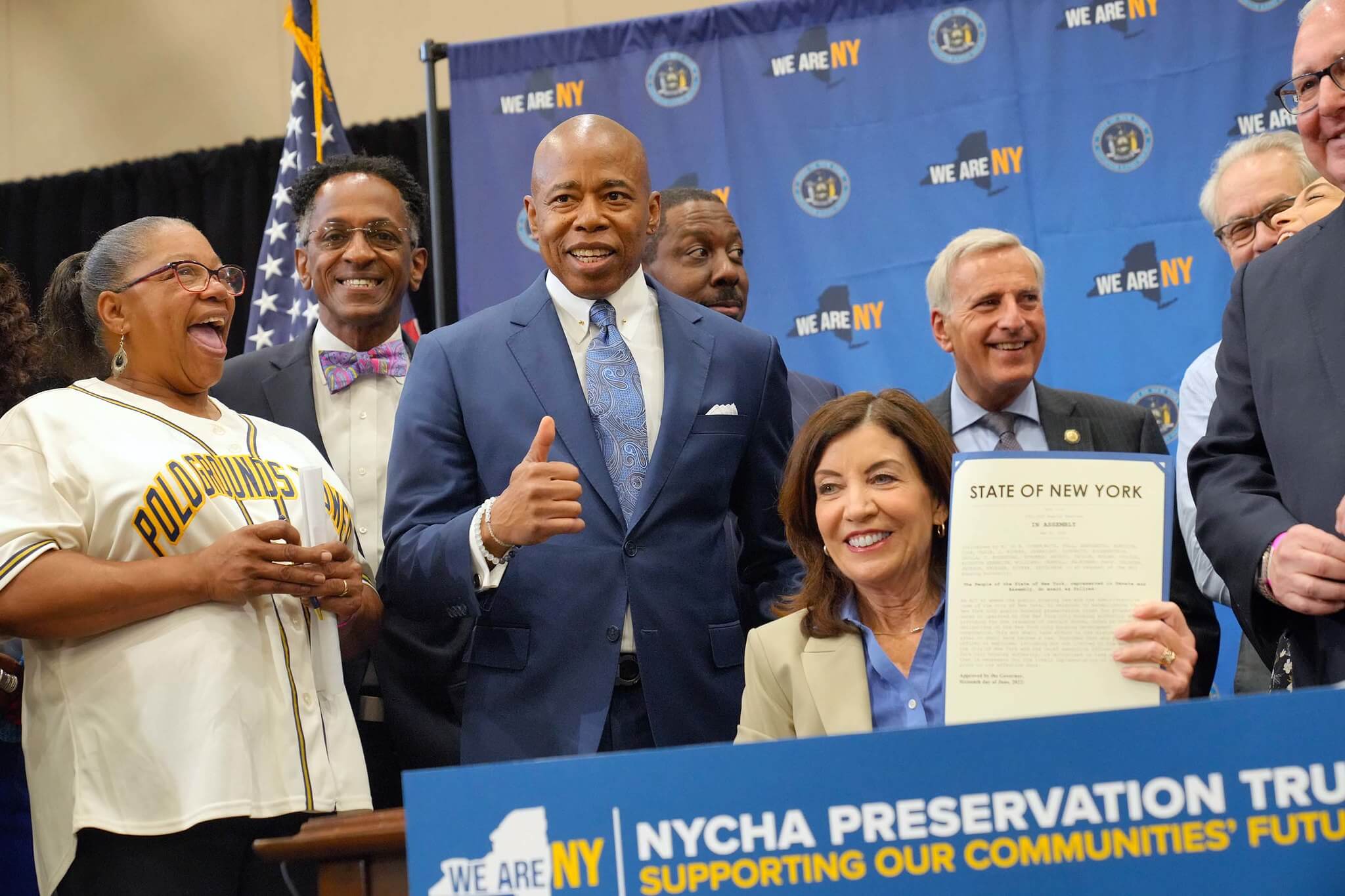
Additionally, he named Red Hook West Houses Tenant Association President Karen Blondel, who was nominated by a resident advisory board assembled for the trust; Vice Chair of the NYCHA Citywide Council of Presidents (CCOP) Barbara McFadden as a member at large; and housing nonprofit Enterprise Community Partners Vice President Baaba Halm also as a member-at-large.
“There is no team better prepared to lead NYCHA into this new chapter than the six women housing leaders we are appointing today,” Adams said in a statement. “This group brings deep ties to NYCHA residents, decades of service to our communities, and an unmatched commitment to their neighbors.”
“I am confident that with the right tools and leadership, NYCHA can live up to the promise of providing safe, high-quality, affordable housing for New Yorkers,” he added.
Of the remaining three board appointments, one will be nominated by the unions representing NYCHA workers and the other two will come from CCOP, according to Adams’ office. The appointments will be made when NYCHA receives the nominations.
“Today’s appointments to the board are foundational to the future success, governance, and oversight of the Public Housing Preservation Trust, an innovative tool that … will bring investment into NYCHA developments and long-overdue improvements for residents across the city,” Bova-Hiatt said in a statement.
Board members will serve three-year terms that will be staggered from the time of appointment and they’ll be paid $250 for every four hours they work for the trust, but can’t be paid more than $1,500 each month, according to City Hall. But the chair and other ex officio members, who are all city employees, won’t be paid extra for their work on the board.
The six appointments follow NYCHA finalizing the voting procedures that will allow residents to choose whether or not their building will opt into the trust and be converted to Section 8 after a four-month public engagement process last fall. The board appointments move NYCHA a step closer to identifying the first few buildings where votes on whether or not to join the trust will be held, a process that will begin in earnest once some other unidentified administrative hurdles are cleared, according to a mayoral spokesperson.
Tenants in buildings that opt into the trust will also get to vote on which contractors are chosen to do the repair work.
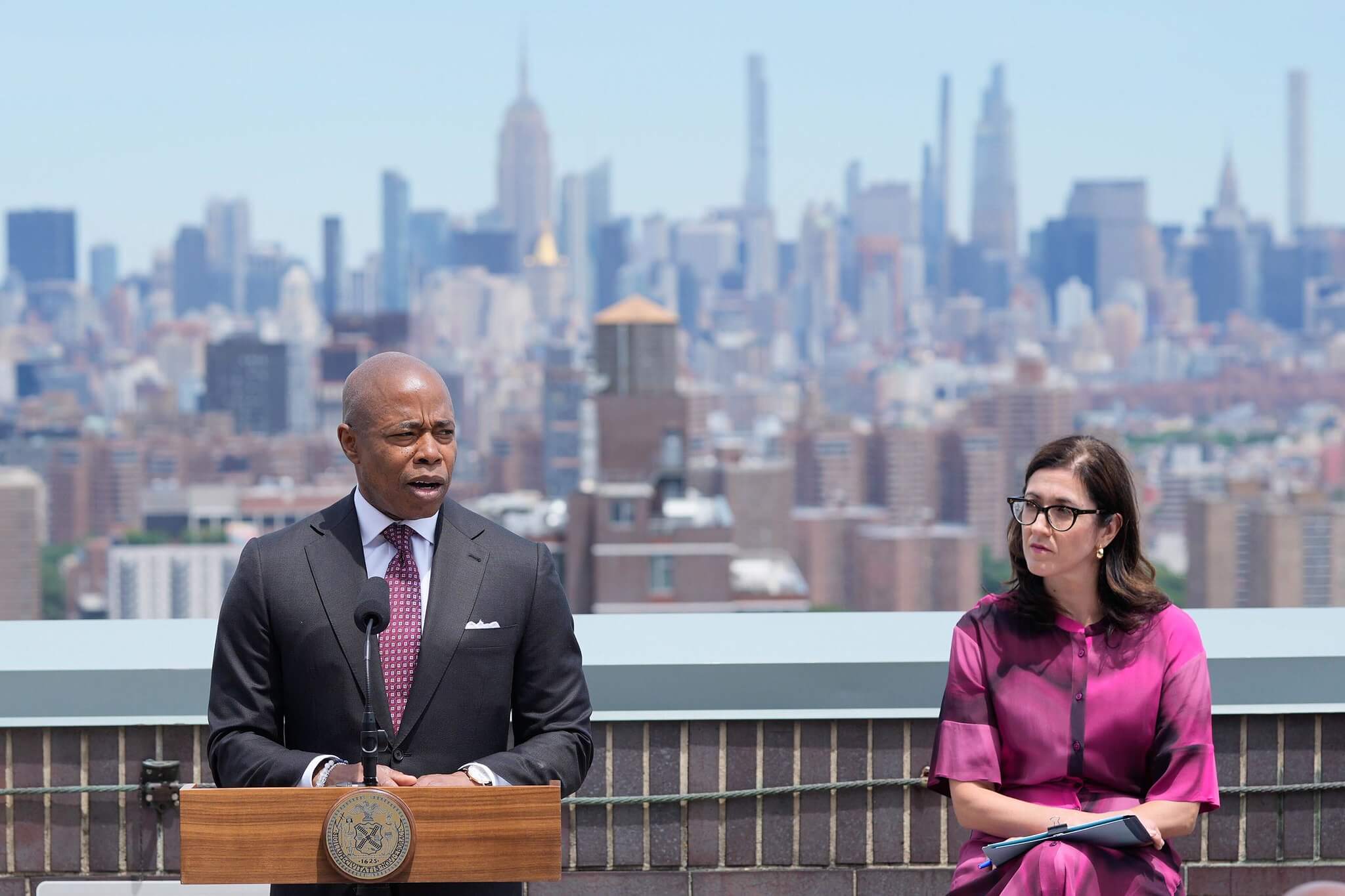
In addition to allowing NYCHA to access more federal dollars, proponents of the trust say it establishes new procurement rules that will lower the costs of making repairs and expedite construction. It’ll also preserve NYCHA’s ownership of its properties and the land they occupy.
On top of that, the trust will protect current rent caps for NYCHA residents — who pay no more than 30% of their income on rent — succession rights and citywide and local tenant associations.
Blondel, in a statement, said that for much of her 40 years as a NYCHA resident, she and her neighbors have felt forgotten by the city, but the trust gives them a new path forward.
“As a 40-year public housing resident and tenants-rights leader, I am honored to have been a part of this process from the outset and to continue my involvement as a member of the board,” Blondel said. “For far too long, my neighbors and I have felt forgotten — but with the trust, we will now have real choice and another viable path for improving the conditions of our homes”



